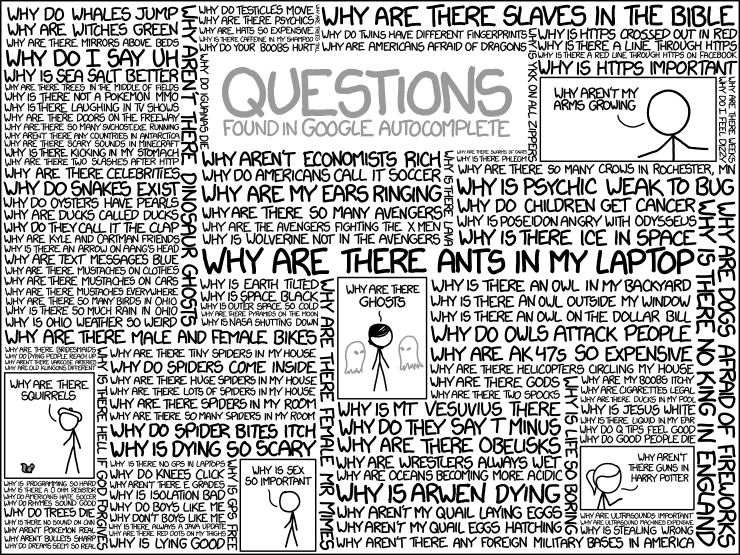Introduction
CSE 440: Introduction to Artificial Intelligence
Vishnu Boddeti
Content Credits: CMU AI, http://ai.berkeley.edu
Class Info
- Instructor: Vishnu Boddeti
- Class: Tue & Thu 03:00pm - 04:20pm
- Location: Packaging Bld 100
- Office Hours: TuTh 4:20pm - 05:20pm

- Teaching Assistants:
- Xiaoxue Wang
- Office Hours: TBD

Administrative Stuff
Lectures
- Before Class: watch pre-recorded lectures
- In Class: questions/clarifications + problem solving
Websites
- Course Schedule and Lectures
- Mimir for HWs, Projects and Exams
- Quizizz for in class Q&A
Communications
- Piazza for all communication
- Do NOT send emails to instructor or TAs
- HW/Exam submitted via email will NOT be graded
- Install Piazza App on phone, tablet, etc.
- Turn-on notifications for Piazza
- Your responsibility to check Piazza and Mimir regularly
Assignments and Grading
- Four Written Assignment: 30%
- Two Programming Assignment: 20%
- Mid-Term Exam: 25%
- Final Exam: 25%
- Quizizz In Class (Extra Credit): 10%
Assignments and Grading
- Written Assignments: 7.5% each
- Programming Assignments: 10% each
- Getting an A vs mastering the material
- Build your CV
- Take advantage of extra credit
Late Days
- 5 free late days total (not per assignment)
- beyond that, 10% reduction of points per late day
- use free late days wisely, save them for assignments towards the end
Book
- Not required, but for students who want to read more we recommend:
- Russell and Norvig, AI: A Modern Approach

- Warning: Not a course textbook, so our presentation does not necessarily follow the presentation in the book.
Plagiarism
- This course has adopted the Chegg and Similar Sites policy. Submission of student work (e.g. assignments and/or exam solutions) based on those found on Chegg, Brainly, Quizlet, and other similar websites will result in an Academic Dishonesty Report (ADR) and an automatic failing grade of zero (0.0) for the course. The ADR for students personally posting questions from assignments or exams to these sites will request additional sanctions.
University COVID Guidelines
- Please be properly masked at all times during the lecture and office hours.
- Lecture will be cancelled if even one student does not follow the mask policy.
What is AI?
News AI?






What is AI?
- Some classical definitions: The science of making machines that:
- Think like humans:
- cognitive science/neuroscience
- e.g., general problem solver (Newell and Simon, 1961)
- Act like humans:
- Turing test
- ELIZA, Julia, chatbots, Alexa, etc.
- Think rationally:
- logic and automated reasoning
- not all problems can be solved through reasoning alone
- Act rationally:
- basis for intelligent agent framework
- unclear if this captures the current scope of AI research
Computational Rationality
- AI as rational machines:
- Rational: maximally achieving pre-defined goals
- Rationality only concerns what decisions are made (not the thought process behind them)
- Goals are expressed in terms of the utility of outcomes
- Being rational means maximizing your expected utility
Essence of Course
Maximize Your Expected Utility
Designing Rational Agents

- An agent is an entity that perceives and acts.
- A rational agent selects actions that maximize its (expected) utility.
- Characteristics of the percepts, environment, and action space dictate techniques for selecting rational actions.
- This course is about:
- General AI techniques for a variety of problem types
- Learning to recognize when and how a new problem can be solved with an existing technique
Pacman as an Agent


Pacman as an Agent
What can AI do?
- Play a (decent) game of table tennis?
- Play a (decent) game of Jeopardy?
- Drive safely along a curving mountain road?
- Drive safely along Grand River Avenue?
- Buy a week's worth of groceries on the web?
- Buy a week's worth of groceries from Meijer?
- Discover and prove a mathematical theorem?
- Converse successfully with a human for an hour?
- Fold the laundry and put away the dishes?
- Write an intentionally funny story?
A (short) history of AI
Superhuman strategic reasoning under imperfect information
- Libratus beats best humans at heads-up no-limit Texas hold'em poker


Thoughts About AI
- AI has many different goals
- We should not be trying to avoid this
- Operations Research has the same issue but is not shy about it
- Should not define AI as that which still cannot be done
- Human-level intelligence just a milestone along the way
- Q: Will there be a super-human species?
Some potential new AI applications with huge positive impact on the world
- Better electricity markets
- Combinatorial $CO_2$ allowance/pollution credit markets
- Automated market making
- Campaign market for advertising
- Security Games:
- physical, information, malware protection, etc.
Reading
- Today's Lecture: RN Chapter 1 and 2
- Next Lecture: RN Chapter 3.1-3.4
Summary
- Course Logistics
- AI Overview
- History of AI
- To Do List:
- Check course web page, Piazza, Mimir
- Review linear algebra, calculus and probability
- Reading for the lectures
Q & A
